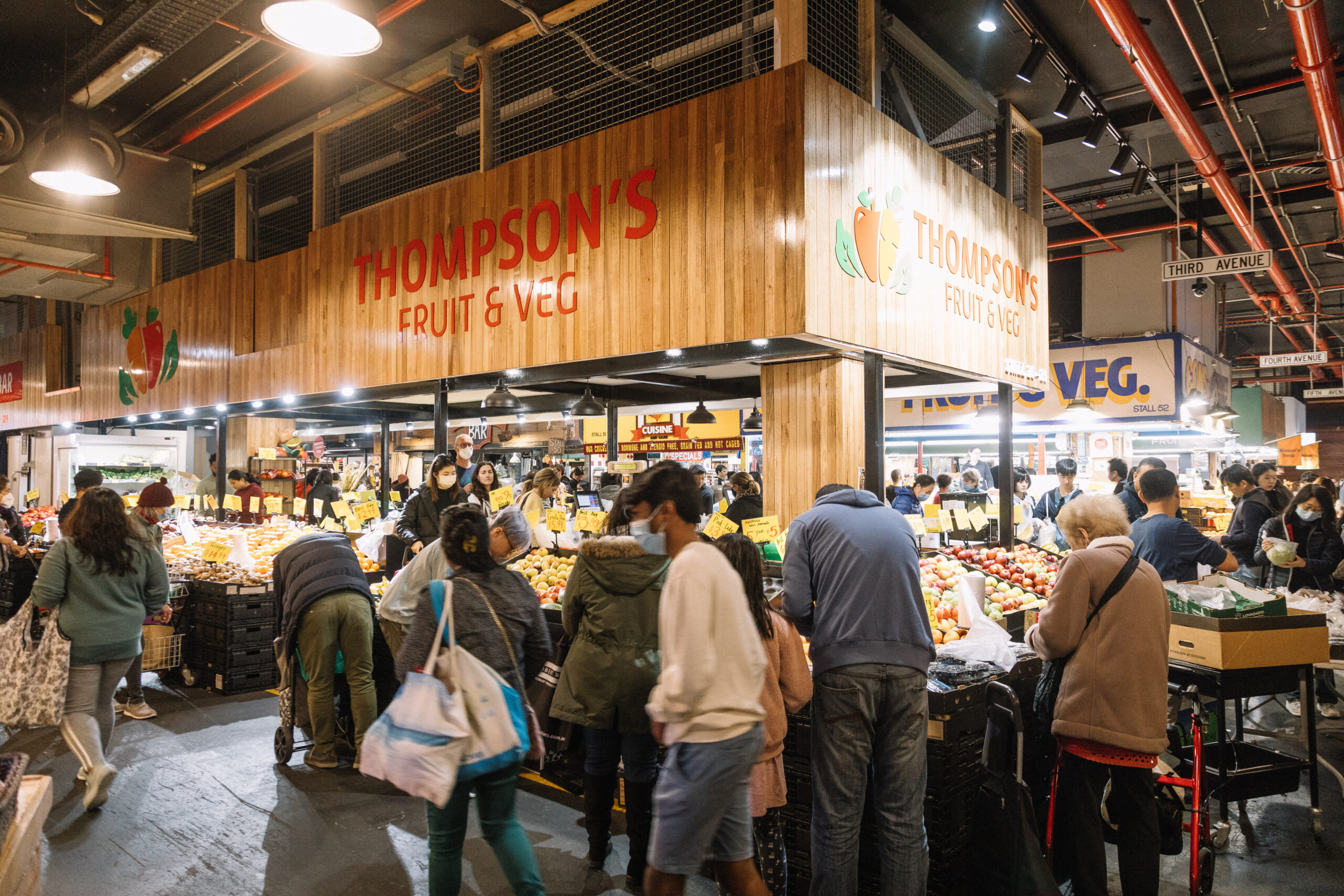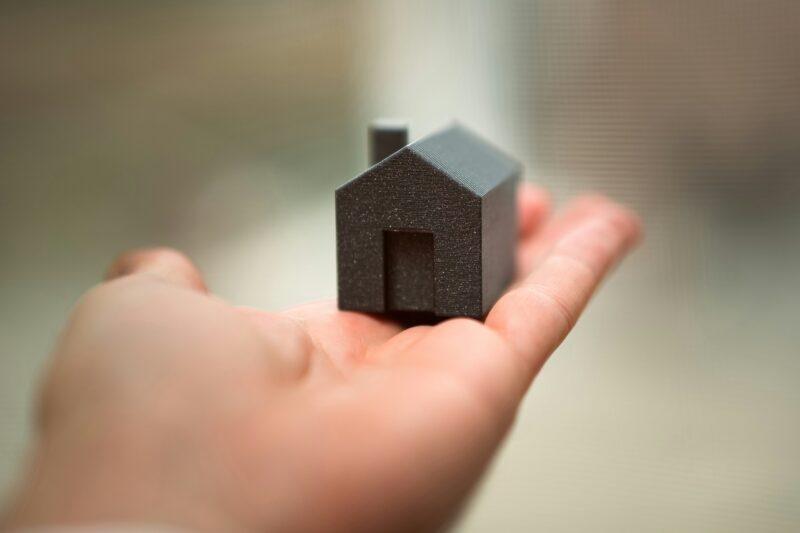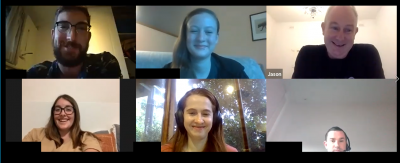Latest observations on the mind and mood of South Australians
South Australians are still readjusting to a “new normal” after the disruptions of COVID-19, as captured in Square Holes mind and mood research.
The research (which has been ongoing since 2013) was designed to track measures of confidence and perceived financial security in the community, and is conducted via a representative survey of 400 adults. From March 2020 onward, the monitoring expanded to explore the current state of mind of South Australian’s in response to changes brought on by the pandemic.
For the latest results, as much as it was the global level impact, traces of struggle remain in terms of economic, mental wellbeing and confidence in the future. It’s not all doom and gloom though, as South Australians as a whole reflected a better resilience in metal wellbeing and overall maintain an optimistic outlook on what’s to come.
Some of the key measures from the study include general confidence levels about the next 12 months (mapped on a monthly basis), perceived financial security (being better or worse compared to 12 months ago and in 12 months’ time), mental health, and wellbeing (being better or worse compared to 12 months ago and in 12 months’ time), and the frequency of various indicators related to mental wellbeing. Recent findings from the latest wave in November 2023 reflect some of the changes as follows.
General confidence
When we expand the general confidence for the coming 12 months into past trends, the date reveals that it was recorded at its lowest at the start of the pandemic with the trend dropping to 26% in March 2020. As containment measures lessened, confidence levels slowly improved, reaching the peak of 53% in August 2022. This level has since dropped down and remained stable around 40% towards the end of 2022 and all three waves in 2023.
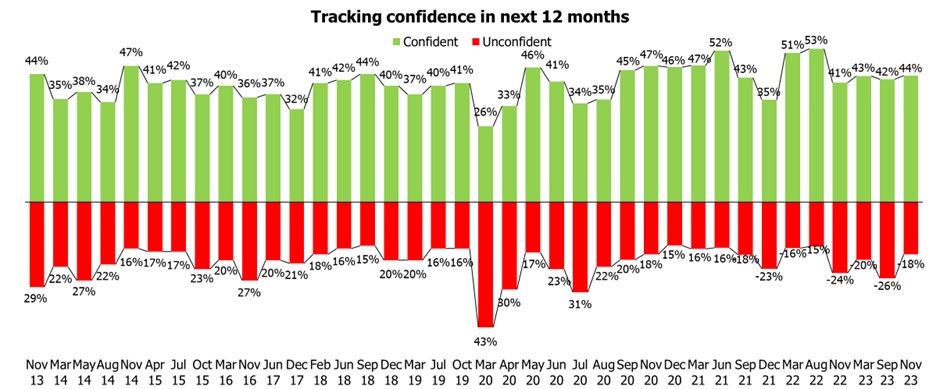
As of November 2023, confidence in the next 12 months is similar among different age groups, sitting around the 43% mark. This is in stark contrast to just a month prior, where the older residents of SA (50+) were much less confident than their younger counterparts.
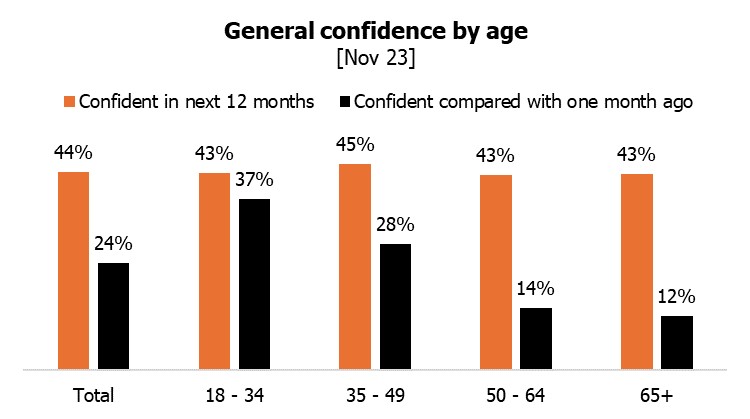
Financial security
Financial security compared to 12 months ago has remained stable around an average of 25% for the year 2023 after dropping from the peak of 34% in March 2022. Anticipation on the financial security to be better in 12 months’ time was the highest in September 2023 reaching a peak of 38% after a steady recovery in 2022. Yet, the year 2023 ends on a drop with 27% in November wave.
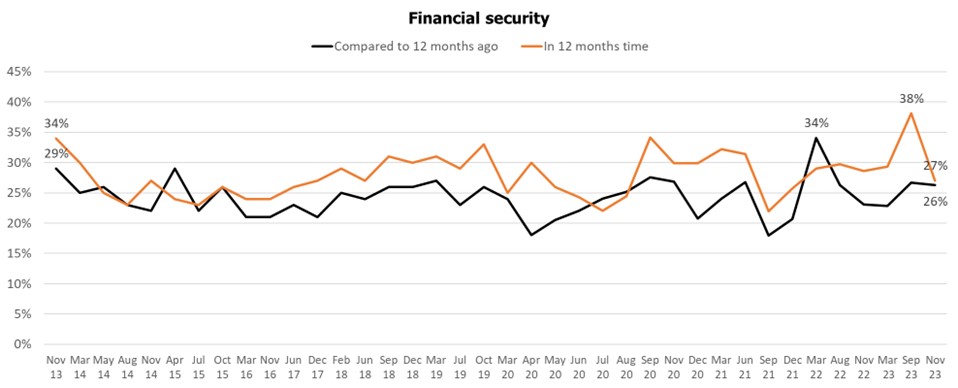
Mental health and wellbeing
In terms of mental health and wellbeing, the tracking of mental health being better compared to 12 months ago has improved consistently in 2023 regardless of the fluctuations in the past years due to the pandemic. Anticipations for personal health and wellbeing to improve within the next 12 months also increased in 2023, until the latest wave of November 2023 where it dropped to 23%.
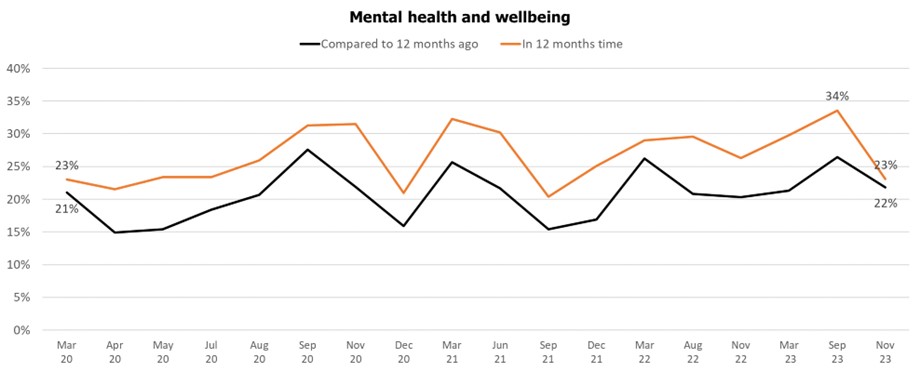
Younger residents between the age of 18 and 24 are the most confident in terms of both financial and mental wellbeing. Yet, they tend to face more frequent occurrences of the designated signs of mental health impacts. The three main indicators were identified as feeling tired out for no good reason (29%), feeling nervous (27%) and feeling restless or fidgety (26%).

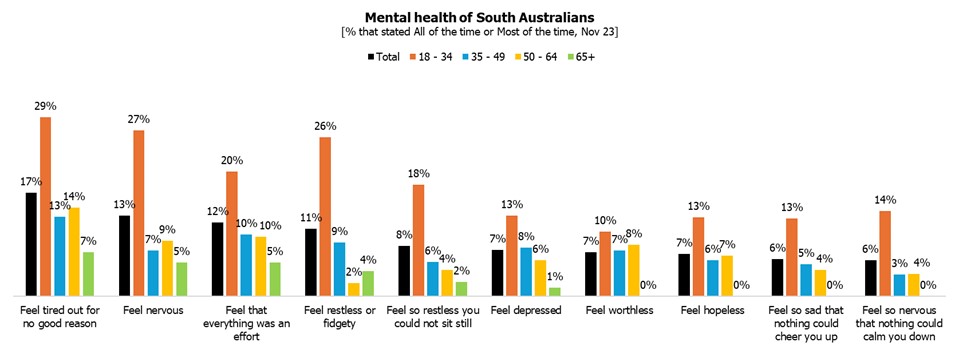
Overall, the trends on confidence levels and anticipation for better financial security and mental health have been fluctuating in the years 2021 and 2022, and reflect a community still in the throes of uncertainty around stability post onset of the pandemic. On average, while remaining optimistic over the year of 2023, South Australians are learning to adjust in the face of uncertainty, and take unpredictability in their stride.
